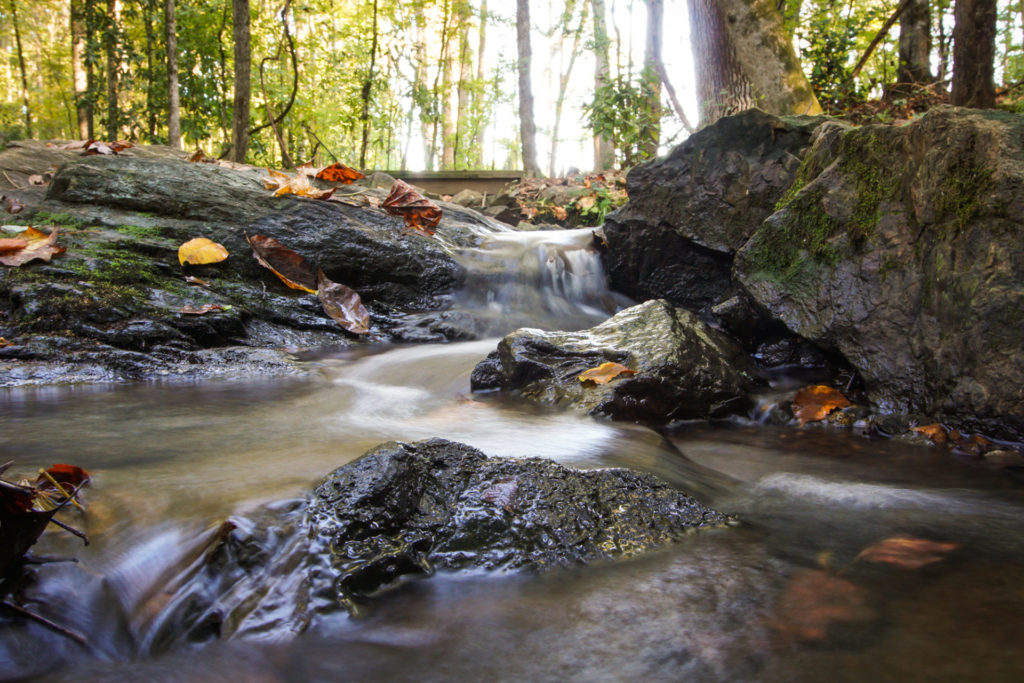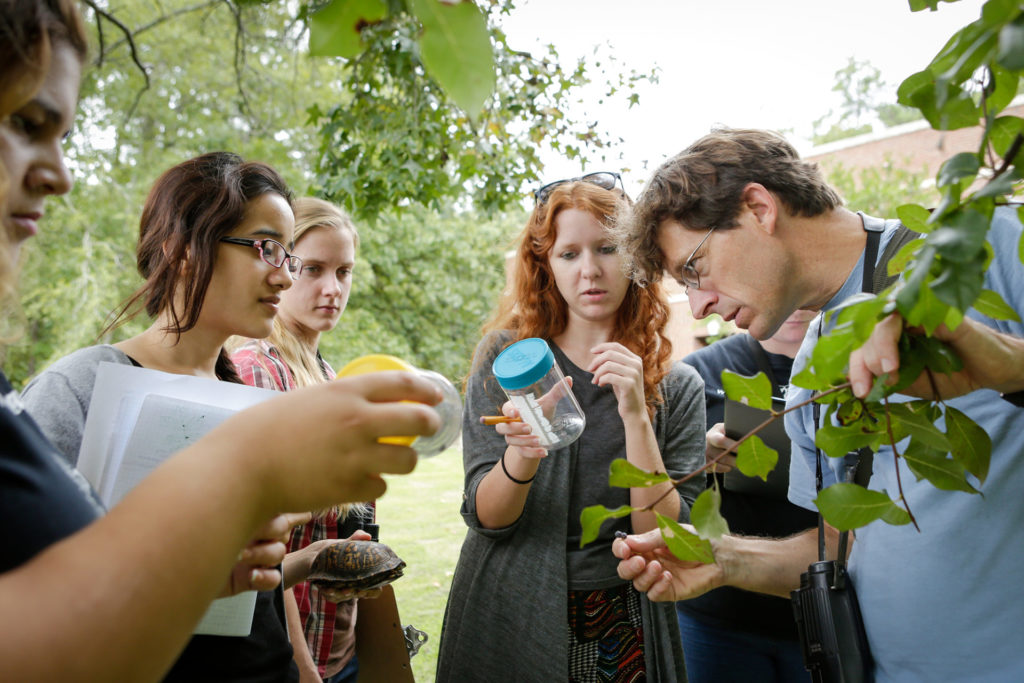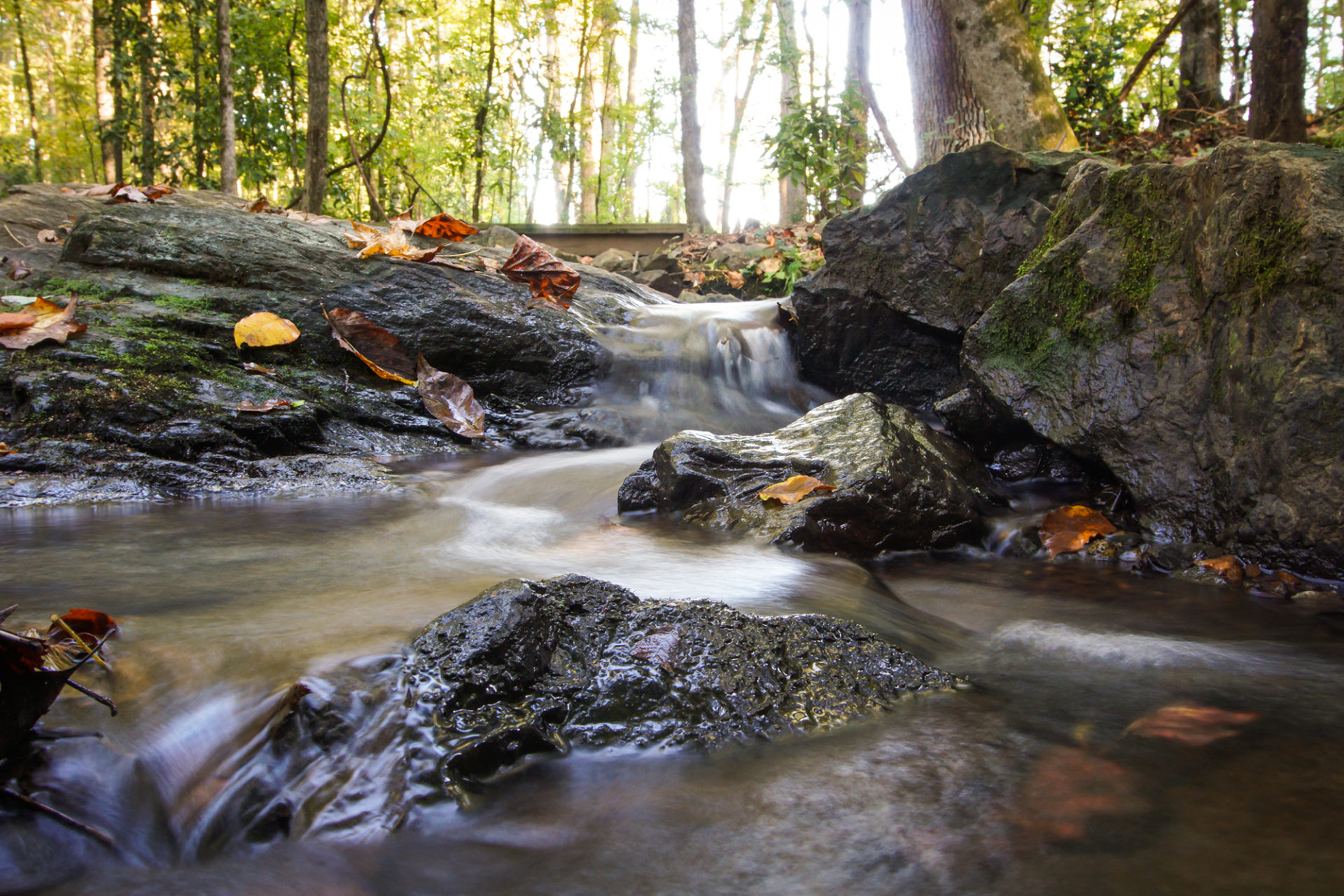
Accredited by the Morton Registry of Arboreta in 2013, the Wesleyan College Arboretum comprises 104 acres of mixed pine and hardwood forest and lies within the boundaries of Wesleyan’s suburban Rivoli campus at 4760 Forsyth Road, Macon, Georgia.
More than 100 species of trees, shrubs, and woody vines provide habitat for a diverse assortment of salamanders, snakes, lizards, and mammals, as well as more than 150 species of resident and migratory birds. The five-acre Foster Lake, three streams, and seasonal rain pools are home to nine species of turtles, fourteen species of frogs, and both native and game fish. The community is invited to enjoy Dice Anderson Cabin, built in 1938, restored in 1990, and renovated in 2011, the Ellen Ann Edenfield Pavilion, built in 2011, and more than three miles of trails that interlace the forest and provide year-round opportunities for strolling, hiking, and cross-country running. Scores of visitors each week enjoy the natural playground with a “folly” and the Fernando La Rosa Memorial Garden with original ceramic designs.
Wesleyan classes often meet in the arboretum. It is a remarkable resource not only for recreation and reflection, but also for use as an outdoor learning laboratory that will promote a nature-smart curriculum for Wesleyan faculty and students as well as local teachers and school children, youth organizations, researchers, and residents.
According to Biology Professor and Arboretum Director Dr. Jim Ferrari, “Experiential learning is very important, especially for students in the sciences. There is a key action step in science– the experiment. You can’t just read about someone else’s experiment and get better at it yourself. Students have to get in the game and design their own research projects, learn from their failures, and get encouragement and gratification from their successes.”

As an ecologist, Ferrari considers Wesleyan’s arboretum a tremendous resource for research and education. When teaching the carbon cycle, he takes students to the same place Wesleyannes have been measuring carbon storage for nearly ten years. “We map and measure trees, examine the soil and dead wood, and weigh leaf litter-fall. Based on all those measurements, we then estimate how much carbon is stored in the woods. Students get to know the forest and bond with it in a sense. The abstract and the hypothetical become concrete and relatable, and as a result, students can learn more effectively.”
Wesleyan was featured in the 2018 Princeton Review’s Guide to 399 Green Colleges for her commitment to the environment and sustainability. The College is cooperating with 100+ schools across the United States forming the American College & University Presidents’ Climate Commitment (ACUPCC). Maintaining a healthy, diverse, and well-managed forest is integral to the President’s Climate Commitment, a project directed at energy conservation, as well as reducing Wesleyan’s environmental impact and “carbon footprint.”
